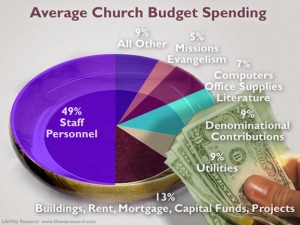Masturbation is the epitome of selfishness and represents the degradation and perversion of something selfless and beautiful. Unfortunately the church (especially in America) can, and often does, display this same behavior.
However you look at it, masturbation is completely self-pleasing. There is no consideration of others; all actions are based on selfish desires that are fulfilled in the easiest way possible. It is often based in fantasies that are degrading and show fictive dominance. It replaces relationships with internal transactions. What is most troubling is that masturbation is based on something that is sacred and special: the sexual relationship between two people who love each other. Sex provides intimate depth to relationships and has the potential to be an amazing example of self-less mutual pleasure. Masturbation short-circuits all of this.

I have been in too many situations where local churches also short-circuit a beautiful design and replace it with something self-seeking. The church is called to be the bride of Christ, the very hands and feet of an incarnate God. The church is God’s agent of reconciliation in this hurting world. The church is called to see a a better world and to partner with God to bring that about. The church should be an outpost of hope by being a collection of broken people who find hope and direction in the promise of something more. Yet all of this can get traded for a structure that is self-pleasing, lacks consideration for others, seeks easy fulfillment for selfish desires, can be degrading and dominant, and replaces relationships with internal transactions. The existence of many churches is nothing more than a source of masturbatory fulfillment for its members.
This critique is most evident when one explores the finances of most churches. Members “tithe” and “give their money to God” yet if you follow the paper trail, most of that money comes back to the members. It is like a pay-as-you-can country club. Consider this:
- In the United States roughly 1/3 of all tax-deductible donations went to houses of worship.
- That amounts to over 103 BILLION dollars ($130,000,000,000.00)
- Of that, “85 percent of all church activity and funds are directed toward the internal operations of the congregation”
- That means “Christians” spend over 87 BILLION dollars, money that was supposedly “given to God,” to benefit themselves.
According to a recent Christianity Today article:
The money given by the people in the pews, it turns out, is largely spent on the people in the pews. Only about 3 percent of money donated to churches and ministries went to aiding or ministering to non-Christians.
Talk about self-pleasuring!
It is troubling enough to see how selfish church budgets actually are. But, what is most devastating and deceptive is the fact that we do this in the name of God and think we are fulfilling his will. We take the image of being faithful and stroke our own desires and needs with it. We convince ourselves we are being self-sacrificing, but at the end of the day we are only meeting our own needs (not only within the church, but our need to feel we have contributed).

- Lifeway Research presents similar findings.
It goes beyond just money. Think about volunteer work within the church. In your congregation what percent of opportunities to serve are simply tasks that are necessary to perpetuate the current structure. Are these things actually furthering the Kingdom of God, or are they simply making sure we can enjoy the worship services and opportunities we have come to expect.
This self-seeking understanding of church and Christianity is deeply ingrained in how we think:
- We choose churches where the worship matches our preferences and the pastors are entertaining.
- We expect churches to provide programs that meet our needs.
- Welcome gifts are the norm – we are literally spending money on people so that they are more likely to join our selfish structure. Tell me this, if someone comes in church with real hurt and needs redemption, is a coffee cup going to heal them?
- We market our churches (intentionally and unintentionally) so that we can appeal to the aesthetic needs of people and not the spiritual needs of people.
- Our sermons tend to focus on feel-good motivation and “practical application” and often avoids the difficult reality of who we are and we are called to be. There is no expectation of real sacrifice.
- Very few churches reflect the diverse tapestry of the communities they serve. How often do prostitutes and CEOs find themselves in the same Sunday School class?
We expect churches to meet our needs. And by participating we not only personally reap the benefits, but we feel like we are fulfilling our spiritual obligations. Instead of spiritual masturbating in private, we flaunt it in public, which makes it all the more disgusting.
Church Staff and Porn
If we are going to explore the nature of the church, we have to be willing to examine how church staffs operate. The typical church budget pays out 50% for staff salaries. A full half of our giving goes to pay professional spiritual people. If churches themselves are examples of auto-erotic hedonism, then I believe the way we view church staff is not much different than the way individuals use pornography.
- Porn employs professionals to “do the dirty work” so actual relationships are not needed.
- Porn stimulates you so feel like you are in the experience when actually you have no real connection to what is going on.
- Porn is on demand you can call on it when you need to. They work to fulfill your needs.
- Porn stars fake it so you get a better show.
Having worked at a church for several years, I know first hand that these are true of how staff are utilized as well.
- Parishioners feel like they are connected to “God’s Work” because they pay the salaries of people to actually do the things. There is little need connect with actual people. We expect the pastor to visit the sick, study the word, pray with the dying, help the needy. As long as someone is doing those things we feel fulfilled.
- We expect church staff to not only do our spiritual dirty work, but also to meet our needs. As long as our kids have good programming, the sermon is not boring and worship is engaging, we are happy. We are more likely to criticize a pastor for not providing us with what we expect than we are to criticize the work they do beyond the walls of the church.
- Church staff members know they have to make things look good. “Spiritual” words are sown into conversations to make things appear to be more important than they are. We call mundane upkeep “ministry” so that people don’t realize we are still just reinforcing a selfish structure.
Don’t get me wrong, I know a good number of pastors and staff members who are embodying and expanding the incarnational love of Christ. We can’t blame staff for the problems of the church — we are all in this together. That being said, we must all acknowledge that paying pastors 6 figures while ignoring the plight of the poor and marginalize can be described as nothing short of sin.
Conclusion
In a world where 30,000 children die every day of preventable diseases, malnutrition and unclean water, and where the poorest 40 percent of the world’s population accounts for only 5 percent of global income, it is unacceptable for the church to sit around pleasuring itself. We can no longer be content with a view of Christianity that encourages selfishness while feeding the illusion of spiritual depth and community impact. If the result of our involvement in church is that we feel better about ourselves, but do not understand how we can participate in the larger redemptive work of a loving God, then we are done nothing more than masturbated our needs and egos in the name of Christ.





 In our last gathering, we spent quite a while talking about communal living and how we can made a practical and tangible impact in our situation. I have been very intentional about making sure I don’t understand my world to be the world! One of the most humbling ways to acheive this is to place ourselves in the global context. Go check out the
In our last gathering, we spent quite a while talking about communal living and how we can made a practical and tangible impact in our situation. I have been very intentional about making sure I don’t understand my world to be the world! One of the most humbling ways to acheive this is to place ourselves in the global context. Go check out the 